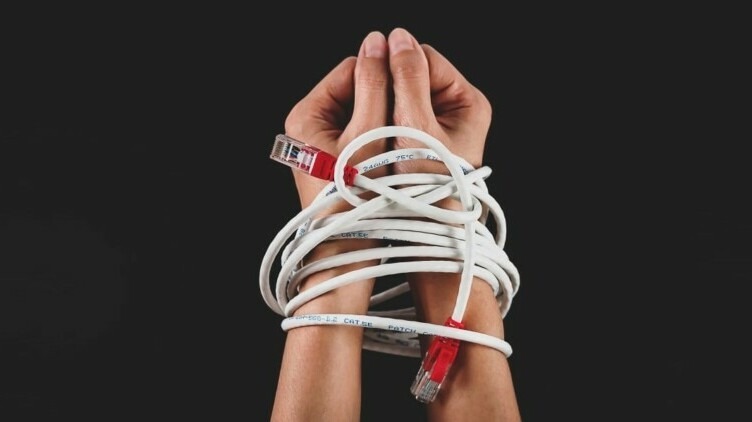Coming In Contact With Forced Labor Scammer Slaves
By Rika Takebe, Vice Director, NPO Charms – a Janaese Nonprofit Supporting Japanese Scam Victims [on Facebook]
What should I do if a scammer I had contact with reveals that they are a victim of human trafficking and forced labor by a fraudulent organization?
There are limited direct actions you can take. While there is no guarantee of rescue, you can provide information to human rights organizations that fight against human trafficking. This may increase the chances of rescuing the forced labor victims.
However, it is important to refrain from further contact with him/her for the safety of the forced laborers. There are two main reasons for this:
For the safety of the forced laborers (scammer slaves):
People who are forced into labor, particularly in Southeast Asia, are in grave danger. If your interactions with them are known to the upper echelons of the fraudulent organization, the forced laborers may be abused or even being killed. Therefore, it is necessary to cut off contact with them for their safety.
For your own safety:
The scammer’s claim of being a forced laborer could be another fraudulent tactic. You cannot tell if the scammer is telling you truth. After providing the information to the human rights organizations, it is important to avoid contact to minimize the risk of getting involved yourself in the next stage of victimization.
Investment frauds/investment romance scams are increasing worldwide and are perpetrated by criminal organizations. Particularly in Southeast Asia, there have been reports of the dire situation where human trafficking victims are forced into labor in scam centers. It is estimated that over 100,000 forced laborers are subjected to scams in Cambodia alone.
According to human rights organization HRC (Humanity Research Consultancy), a successful rescue often involves intervention by the forced labor victim’s embassy. Contacting local police directly by the forced laborers or their families or NGOs, often leads to inadequate responses. By officially conveying information about the victims to the embassy, there is a higher likelihood of them being rescued through safer means.
Even after rescue, the forced labor victims may still face difficult circumstances. For example, their visa has been expired and they may be treated as illegal stay. They may not afford to pay the penalty for the overstay, and by some cases resulted with being confined as the illegal immigrants. The diplomatic approach by the embassies will help them resolve the issue of the fines for overstaying, and safely bring them back to their countries.
Here are key steps to take if a scammer comes out as a forced laborer:
- Record the information: Record the detailed information provided by the scammer. This includes their name, contact details, the country they are in, and approximate location if you can obtain such information. You do not need to delve further into the details, as it may pose risks for the forced laborers.
- Contact human rights organizations: Reach out to human rights organizations or NGOs that are involved in combating forced labor and human trafficking. There’s no guarantee that these organizations can successfully rescue the forced laborer, however, if the situation allows, they can work with the local law enforcements and embassies to take actions. Examples of such organizations include HRC (https://humanity-consultancy.) and The Exodus Road (https://theexodusroad.com/), International Justice Mission (https://www.ijm.org/ ).
- Consider the safety of the forced laborers: Prioritize the safety of the forced laborers and avoid contact with them to prevent any threats to their lives if their connection to the outside world is known to their upper echelons. It is crucial to seek support from trustworthy organizations and experts who have experience in protecting the rights and safety of the human trafficking victims. They can guide them on the best course of action for ensuring the safety and rescue of the victims. And this is not the job for scam victims support professionals.
References:
- HRC(2023). HRC Briefing: Guidance on Responding to Victims in Forced Scam Labour.
April 21, 2023 (Viewed 05 July 2023)
https://humanity-consultancy.com/publication/hrc-briefing-guidance-on-responding-to-victims-in-forced-scam-labour/ - Perdue, M.(2022). The Pig-Butchering Scam – Human trafficking enables a major investment fraud. Psychology Today. (viewed 05. July 2023)
https://www.psychologytoday.com/intl/blog/end-human-trafficking/202211/the-pig-butchering-scam - Podkul C, Liu Cindy(2022). Human Trafficking’s Newest Abuse: Forcing Victims into Cyber Scamming. ProPublica Sep. 13. 2022. (viewed 05 July 2023)
https://www.propublica.org/article/human-traffickers-force-victims-into-cyberscamming - Wang F, Zhou, X (2022): Persuasive Schemes for Financial
Exploitation in Online Romance Scam: An Anatomy on Sha Zhu Pan (杀猪盘) in China, Victims & Offenders, DOI: 10.1080/15564886.2022.2051109 - Whitehouse,D. (2023). Cambodia, Myanmar “Cyber-slaves” are being Recruited Globally, Research Finds. THE DIPLOMAT May 08, 2023.
https://thediplomat.com/2023/05/cambodia-myanmar-cyber-slaves-are-being-recruited-globally-research-finds/
More ScamsNOW.com Articles
-/ 30 /-
What do you think about this?
Please share your thoughts in a comment below!
SCARS LINKS: AgainstScams.org RomanceScamsNOW.com ContraEstafas.org ScammerPhotos.com Anyscam.com ScamsNOW.com
reporting.AgainstScams.org support.AgainstScams.org membership.AgainstScams.org donate.AgainstScams.org shop.AgainstScams.org
youtube.AgainstScams.org linkedin.AgainstScams.org facebook.AgainstScams.org
Important Information for New Scam Victims
- Please visit www.ScamVictimsSupport.org – a SCARS Website for New Scam Victims & Sextortion Victims.
- SCARS Institute now offers its free, safe, and private Scam Survivor’s Support Community at www.SCARScommunity.org – this is not on a social media platform, it is our own safe & secure platform created by the SCARS Institute especially for scam victims & survivors.
- SCARS Institute now offers a free recovery learning program at www.SCARSeducation.org.
- Please visit www.ScamPsychology.org – to more fully understand the psychological concepts involved in scams and scam victim recovery.
If you are looking for local trauma counselors, please visit counseling.AgainstScams.org
If you need to speak with someone now, you can dial 988 or find phone numbers for crisis hotlines all around the world here: www.opencounseling.com/suicide-hotlines
Statement About Victim Blaming
Some of our articles discuss various aspects of victims. This is both about better understanding victims (the science of victimology) and their behaviors and psychology. This helps us to educate victims/survivors about why these crimes happened and not to blame themselves, better develop recovery programs, and help victims avoid scams in the future. At times, this may sound like blaming the victim, but it does not blame scam victims; we are simply explaining the hows and whys of the experience victims have.
These articles, about the Psychology of Scams or Victim Psychology – meaning that all humans have psychological or cognitive characteristics in common that can either be exploited or work against us – help us all to understand the unique challenges victims face before, during, and after scams, fraud, or cybercrimes. These sometimes talk about some of the vulnerabilities the scammers exploit. Victims rarely have control of them or are even aware of them, until something like a scam happens, and then they can learn how their mind works and how to overcome these mechanisms.
Articles like these help victims and others understand these processes and how to help prevent them from being exploited again or to help them recover more easily by understanding their post-scam behaviors. Learn more about the Psychology of Scams at www.ScamPsychology.org
SCARS INSTITUTE RESOURCES:
If You Have Been Victimized By A Scam Or Cybercrime
♦ If you are a victim of scams, go to www.ScamVictimsSupport.org for real knowledge and help
♦ SCARS Institute now offers its free, safe, and private Scam Survivor’s Support Community at www.SCARScommunity.org/register – this is not on a social media platform, it is our own safe & secure platform created by the SCARS Institute especially for scam victims & survivors.
♦ Enroll in SCARS Scam Survivor’s School now at www.SCARSeducation.org
♦ To report criminals, visit https://reporting.AgainstScams.org – we will NEVER give your data to money recovery companies like some do!
♦ Follow us and find our podcasts, webinars, and helpful videos on YouTube: https://www.youtube.com/@RomancescamsNowcom
♦ Learn about the Psychology of Scams at www.ScamPsychology.org
♦ Dig deeper into the reality of scams, fraud, and cybercrime at www.ScamsNOW.com and www.RomanceScamsNOW.com
♦ Scam Survivor’s Stories: www.ScamSurvivorStories.org
♦ For Scam Victim Advocates visit www.ScamVictimsAdvocates.org
♦ See more scammer photos on www.ScammerPhotos.com
You can also find the SCARS Institute’s knowledge and information on Facebook, Instagram, X, LinkedIn, and TruthSocial
Psychology Disclaimer:
All articles about psychology and the human brain on this website are for information & education only
The information provided in this and other SCARS articles are intended for educational and self-help purposes only and should not be construed as a substitute for professional therapy or counseling.
Note about Mindfulness: Mindfulness practices have the potential to create psychological distress for some individuals. Please consult a mental health professional or experienced meditation instructor for guidance should you encounter difficulties.
While any self-help techniques outlined herein may be beneficial for scam victims seeking to recover from their experience and move towards recovery, it is important to consult with a qualified mental health professional before initiating any course of action. Each individual’s experience and needs are unique, and what works for one person may not be suitable for another.
Additionally, any approach may not be appropriate for individuals with certain pre-existing mental health conditions or trauma histories. It is advisable to seek guidance from a licensed therapist or counselor who can provide personalized support, guidance, and treatment tailored to your specific needs.
If you are experiencing significant distress or emotional difficulties related to a scam or other traumatic event, please consult your doctor or mental health provider for appropriate care and support.
Also read our SCARS Institute Statement about Professional Care for Scam Victims – click here
If you are in crisis, feeling desperate, or in despair, please call 988 or your local crisis hotline – international numbers here.
More ScamsNOW.com Articles
A Question of Trust
At the SCARS Institute, we invite you to do your own research on the topics we speak about and publish. Our team investigates the subject being discussed, especially when it comes to understanding the scam victims-survivors’ experience. You can do Google searches, but in many cases, you will have to wade through scientific papers and studies. However, remember that biases and perspectives matter and influence the outcome. Regardless, we encourage you to explore these topics as thoroughly as you can for your own awareness.

























![NavyLogo@4x-81[1] Coming In Contact With Forced Labor Scammer Slaves](https://scamsnow.com/wp-content/uploads/2025/04/NavyLogo@4x-811.png)
![scars-institute[1] Coming In Contact With Forced Labor Scammer Slaves](https://scamsnow.com/wp-content/uploads/2025/04/scars-institute1.png)

![niprc1.png1_-150×1501-1[1] Coming In Contact With Forced Labor Scammer Slaves](https://scamsnow.com/wp-content/uploads/2025/04/niprc1.png1_-150x1501-11.webp)